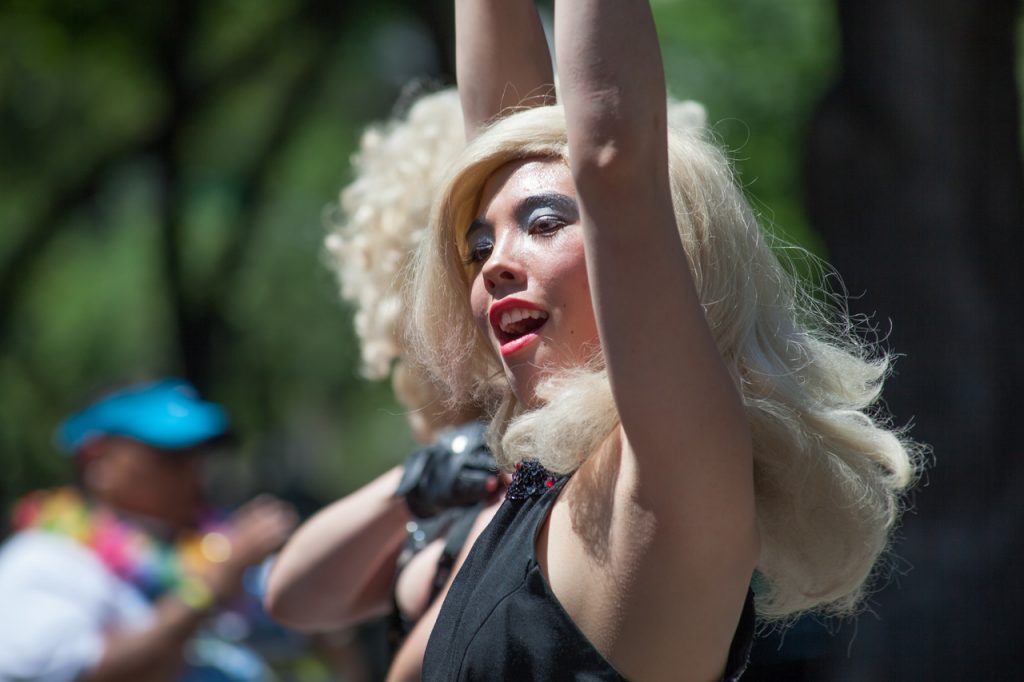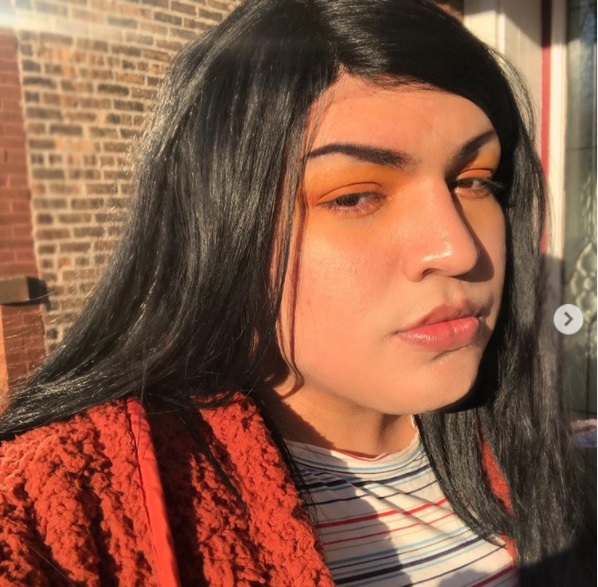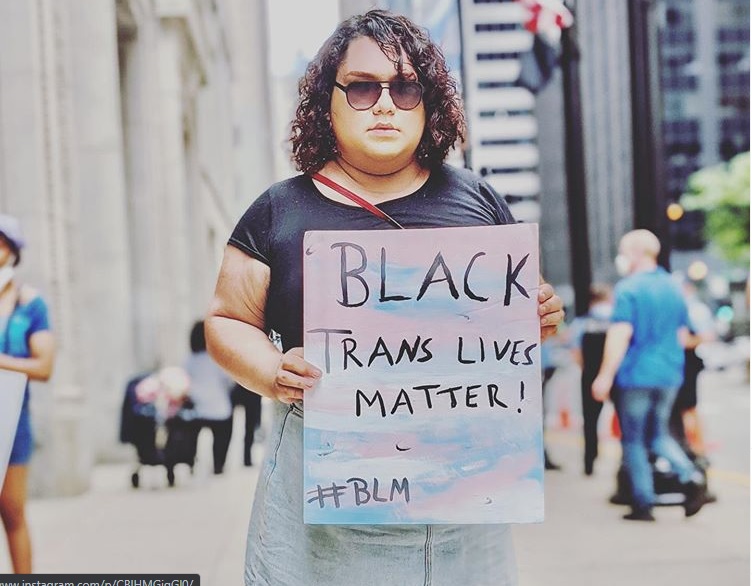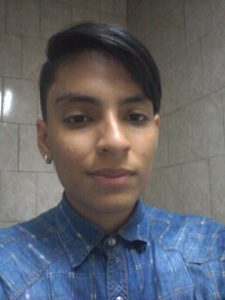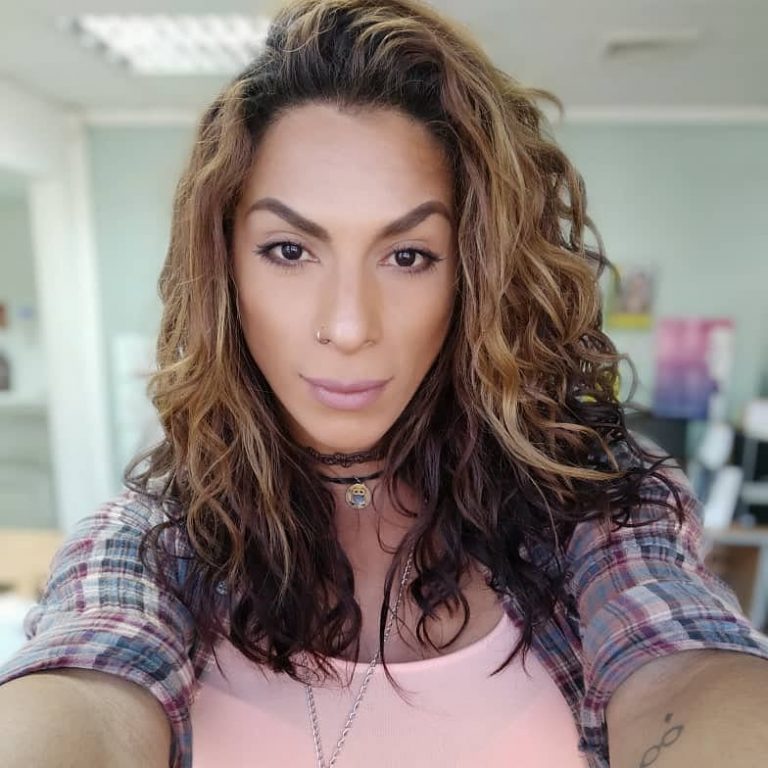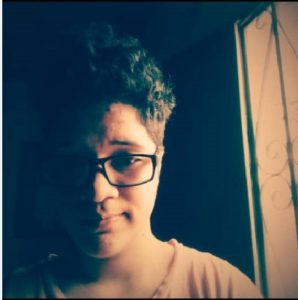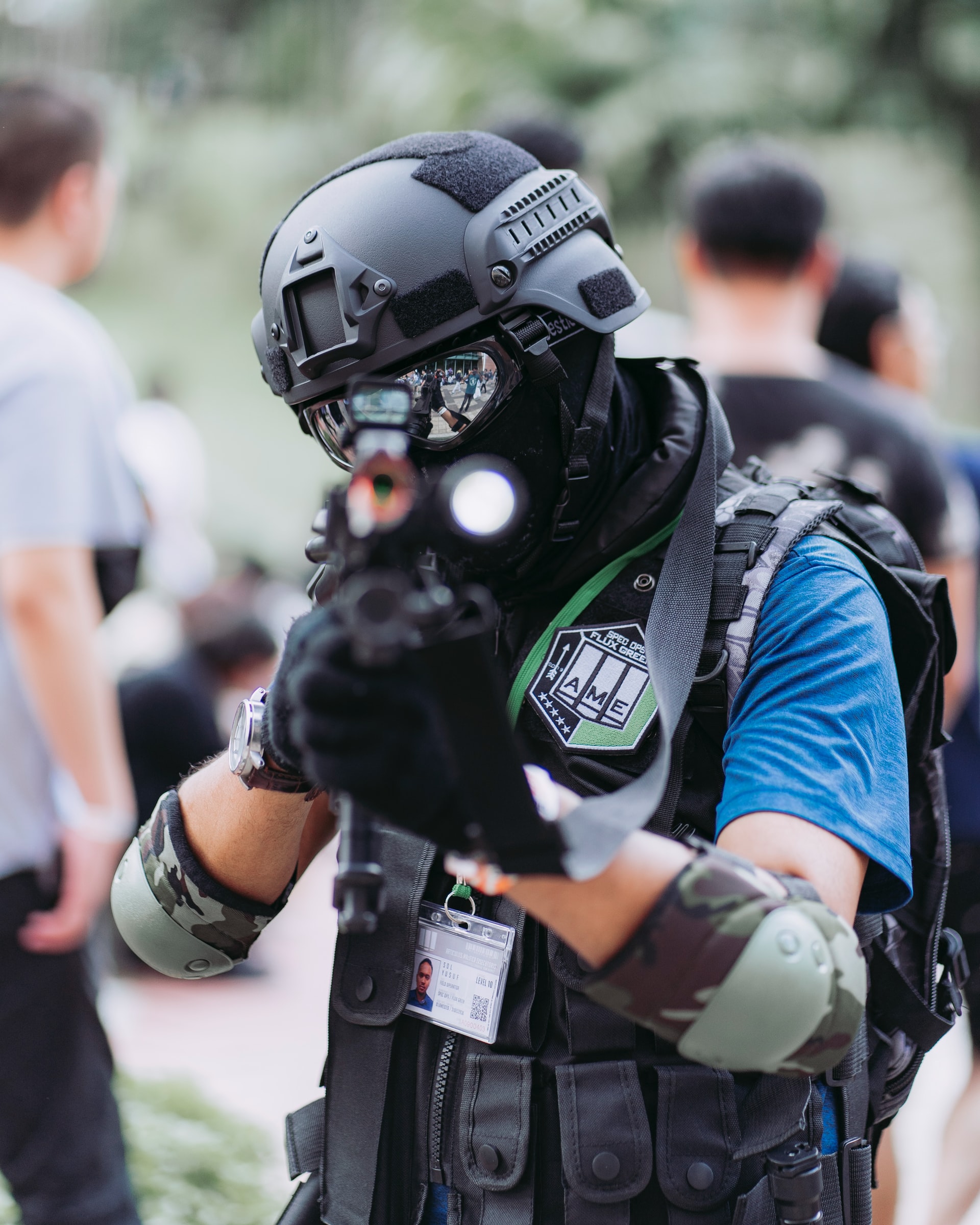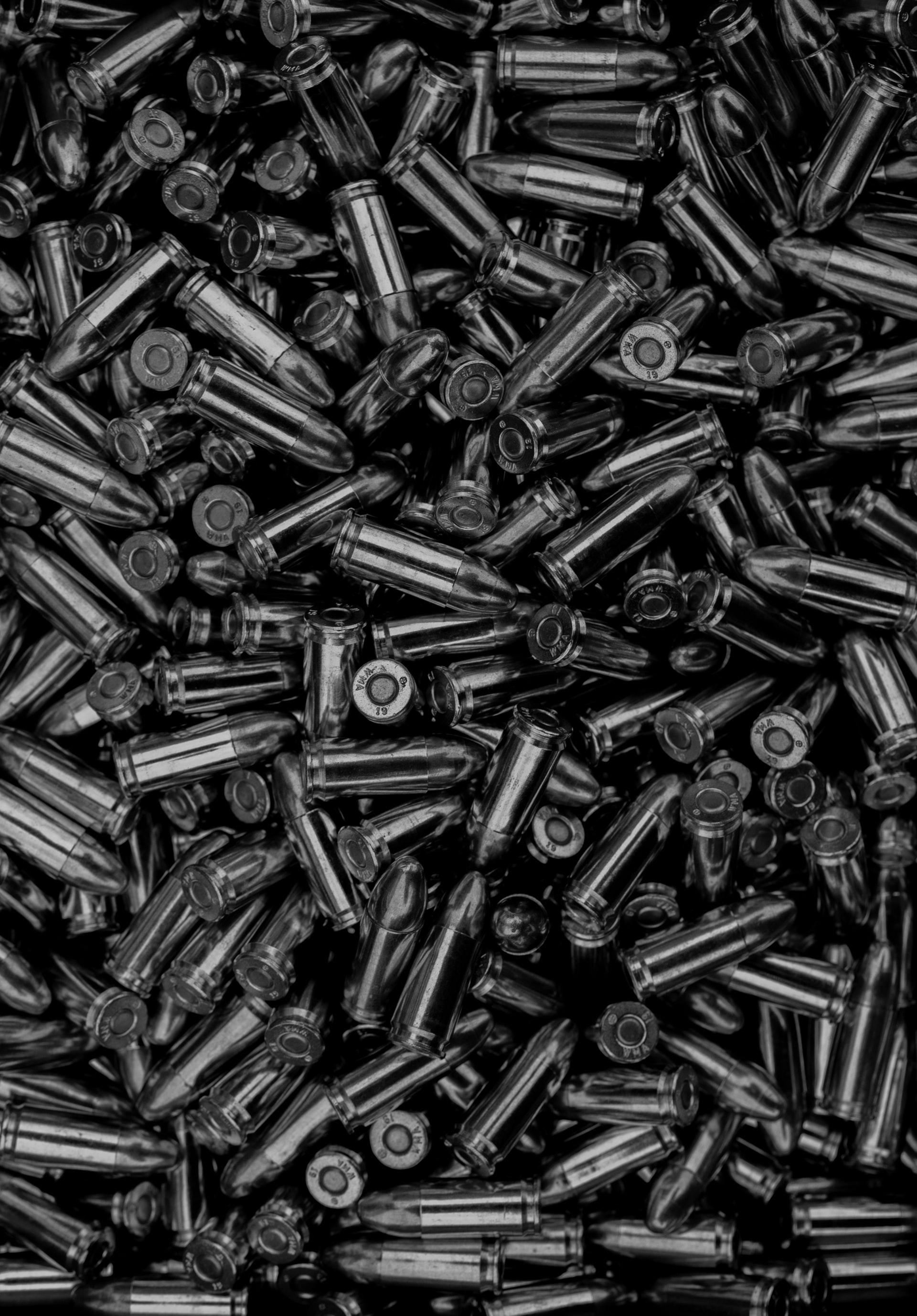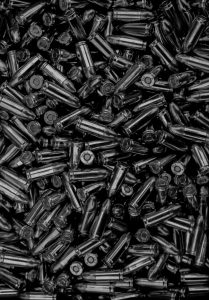Jayla Padilla knew from the age of five that she was trapped in a body that was not her own. In that introspective process, in her adolescence she came out as a “gay man” and understood that description did not represent her as a person, she wanted to become a trans woman.
Later on she found the answer: She wanted to become a woman and she wasnt to stop until she got it. She began her transition two years ago and describes it as a “super difficult” process, but within her, motivation is everything.
Jayla was born in Chicago, then she lived for a few years in Puerto Rico and now she’s back in the Windy City. She considers herself Latinx, she’s an activist for the rights of the trans community and people with HIV.
She has experienced discrimination closely. By her family, neighbors and even within the same community. «Being a trans woman implies fighting for many rights,» she says.
“The police do not respect us and when we seek help from the authorities our voice is not heard. In addition, we also have to face multiple prejudices on the part of members of the community itself (LGBT) ”says Jayla in an interview via Zoom.
“I'm not a drag queen”
One of the anecdotes that Jayla remembers the most is when she went to a gay club disco with her friends.
Upon entering she began to hear comments from a group of gay boys. «I heard them tell us: today is not drag queen day, I don’t understand what they’re doing here,» she says.
“That saddened me because they don’t understand that we have decided to live our lives as women and that doesn’t make us a drag queen. That is a symbol of spectacle, ”argues Jayla.
From that experience and others like it, she believes that some homosexuals are macho and mistreat trans men and women. That prompted her to seek spaces where only trans people coexist.
But even so, she has also felt discriminated against. She has been told by other trans women that she must look feminine all the time to impress and find a man who loves her.
“Some girls believe that we should go at their own pace. Getting hormonal treatment in a certain time, having surgery, getting nails done and everything very quickly, but that is also expensive and there are bills to pay, » she says.
Regardless of the noise around her, Jaying is convinced that the world has more to offer. As a trans woman and HIV positive, she fights for her rights to be recognized, because human beings are just that, humans.
Puta Power
Emily Aguilar is known on social networks as @puta_power_, for her the word «whore» should not be associated with a bad word, but is synonymous with a woman who works hard for what she wants and leaves aside the stigmas of society.
Aguilar lives in Chicago and is of Mexican and Puerto Rican descent. When did you start to feel different? Ever since she was in kindergarten, she had been drawn to feminine clothes, dolls, and makeup.
At 16, she made the decision to express herself as a trans woman and she is now 21.
Emily like Jayla has experienced discrimination within the LGBTQ + community. “Older girls think they have a duty to advise us and want us to do everything as they did,” Emily emphasizes.
She considers that each person should have the power to decide when to go through different processes.
“Discrimination within our own circle has been going on for years. It is an issue that still persist. We have to teach ourselves that we have to support each other and not judge ourselves” she says.
Emily believes that comments can sometimes hurt more than people think and her opinion is that as trans women they live their lives without paying attention to others. She has decided so.
Her purpose is to fight to live without fear, without feeling discriminated against and never turn off her voice. She fights for a more equal life and works in an organization that is responsible for helping young people in vulnerable situations and with the same desire in the future, she hopes to have the economic means to become a teacher in Chicago.
Every day she is more aware of her change and has an attitude that radiates that she is proud of the human being she is becoming.
Being activists
Transphobia within the LGTBQ + community is not limited to a geographical area. It is a pattern that is repeated in other parts of the world.
The activist and trans man Yamil Tovar (25) believes that more should be said about this and raise awareness. When he told everyone that he felt like a man, he did not receive any kind of support and thought that he would find him within the LGBTQ community and that he would not feel judged.
“Sometimes they fall into prejudices and stereotypes. They have told me that I should already be taking hormones and they even ask me why I am so femenine on certain occasions", he says.
They have even questioned why he has a cisgender and homosexual boyfriend. “I have gone to the extreme of arguing with people who do not understand my relationship and I have had to defend it within my own community. It is not enough to deal with it with the rest of the people, apparently ”, he confesses.
Yamil is aware that there are exceptions and that this type of comment depends on the type of persons. «There are those who are very lovely people, they are super understanding, but there are others who are super problematic and they assure you that you must go through the transition like they did».
How does it affect?
In the blog of the Colombian collective «Transgarte» they explain that transphobia within the community manifests itself as a phenomenon of hatred and exclusion, it arises from the need to «annihilate the different», despite the fact that they have a common context and that it should exist this richness that starts from this diversity.
They insist that the authorities have not focused on creating awareness campaigns for members of the community itself and that they aim at «the elimination of imaginary prejudice and pejorative treatment among the same members of the LGBTI population.»
Trans activist Prissila Solorzano, a member of the organization Caleidoscopio Humano, affirms that she has never felt discrimination within the same community, however she has been a participant or heard certain comments about it.
«It cannot be denied that there is discrimination within the LGTBQ + population, it is not so aggressive or so obvious, but it does exist,» she adds.
Solorzano comments that this is evidenced in actions such as calling trans women by masculine pronouns, instead of feminine.
«Other forms of discrimination that I have been able to observe is that they tell trans men that if they think they are very» macho» he points out.
This situation can generate anxiety and lead to thoughts such as that it is not possible to generate bonds of trust within the community itself, as Geordy Quiñones, director and activist of the Intersectional organization, thinks.
Quiñones highlights that “being discriminated against within the trans community has limited me to creating bonds of friendship or creating support networks. It makes me powerless because instead of supporting each other, some only create conflicts ”.
He reveals that personally they have branded him as crazy and as a coward, as well as they have also excluded him. “They think they know what a person’s transition should be like. They are boxed in a small standard and from there they do not come out ”, he concludes.
